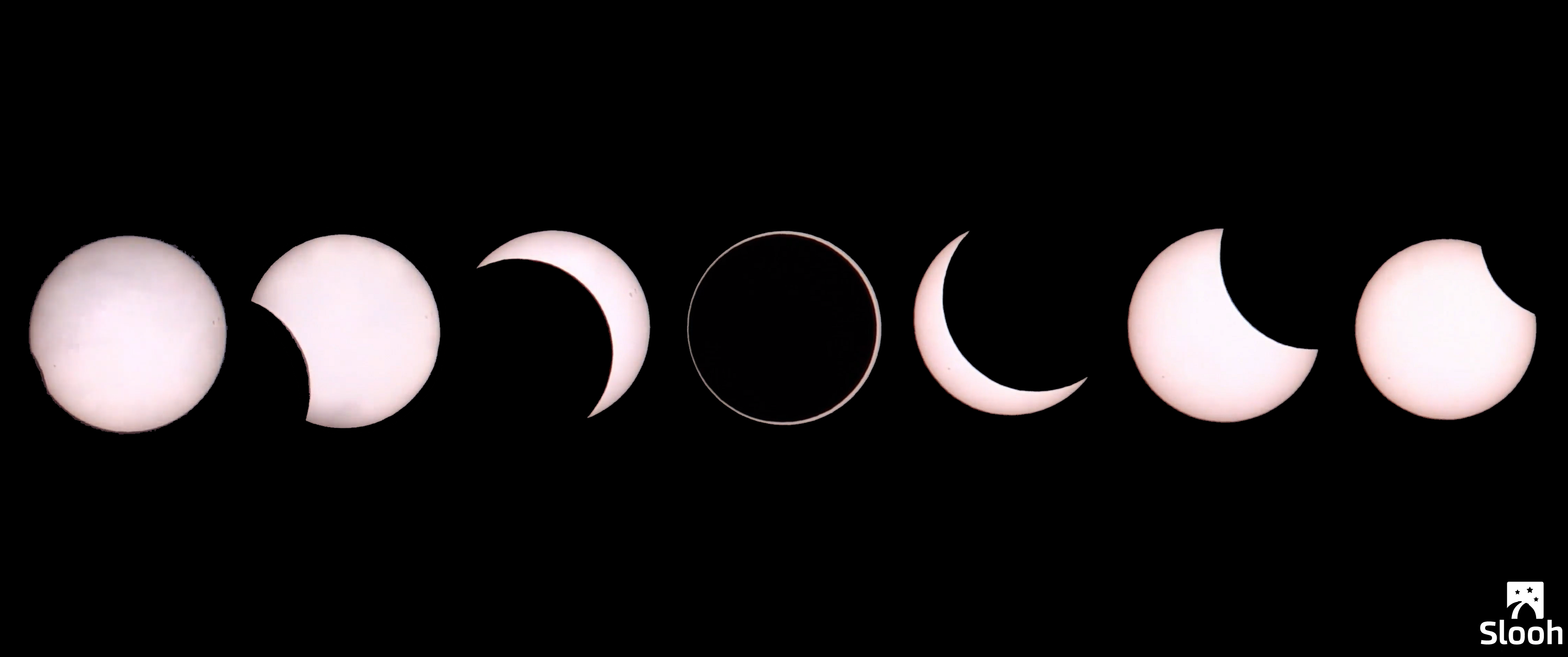'Ring of Fire' Solar Eclipse Treats Skywatchers in Africa (Photos, Video)
A glorious solar eclipse made its way across the African sky early this morning (Sept. 1). As the moon crossed the sun's face, the two created a "ring of fire" that glowed in the sky for about 3 minutes.
Viewers from Gabon to Tanzania to Madagascar could see the annular solar eclipse, with the moon crossing the sun front and center. At least a partial solar eclipse, in which the moon appears to have taken a bite out of the sun, was visible from most of Africa.
The rest of the world was also able to witness the eclipse from afar, thanks to the Slooh Community Observatory, which broadcast live online views from several telescopes around Africa. Slooh and Weathernews Japan also provided this amazing time-lapse view of the eclipse as seen from Reunion Island, east of Madagascar.
Even for observers gazing up at a partial eclipse under cloudy skies, the view was spectacular. In Tanzania, photographer Dominyk Lever captured some stunning images of the cloud-covered partial eclipse. [What is a Solar Eclipse, and When is the Next One?]
"I was worried initially that a cloudy day here in Arusha was going to stymie my efforts, but it turned out to be easier to capture the images through the clouds," Lever told Space.com in an email. You can see more of Lever's photograpy at his website here.
Clouds often block the view during skywatching events. But in this case, the clouds actually helped dim the sun's dangerously bright glow without getting in the way. (Warning: Never look directly at the sun, even during an eclipse, without proper protection; serious and permanent eye damage can result.)
Lever is a safari guide who usually spends his time taking pictures of animals, landscapes and people. With a decent viewing spot for the eclipse in Tanzania, he decided to take a stab at some astrophotography as well. "I was excited by the challenge of photographing such a unique event," he said.
Breaking space news, the latest updates on rocket launches, skywatching events and more!
Lever's experience was such a success that he now plans to travel to the United States next year to witness a total solar eclipse.
Next year, the "Great American Total Solar Eclipse" will darken skies across much of the continental U.S. on Aug. 21. The "path of totality" stretches from Oregon to South Carolina.
A total solar eclipse hasn't been visible from the U.S. mainland since 1979, so you won't want to miss this one. (But if you do, don't despair; another total solar eclipse will darken skies over Texas, the Midwest and the Northeast in 2024.)
Email Hanneke Weitering at hweitering@space.com or follow her @hannekescience. Follow us @Spacedotcom, Facebookand Google+. Original article on Space.com.

Hanneke Weitering is a multimedia journalist in the Pacific Northwest reporting on the future of aviation at FutureFlight.aero and Aviation International News and was previously the Editor for Spaceflight and Astronomy news here at Space.com. As an editor with over 10 years of experience in science journalism she has previously written for Scholastic Classroom Magazines, MedPage Today and The Joint Institute for Computational Sciences at Oak Ridge National Laboratory. After studying physics at the University of Tennessee in her hometown of Knoxville, she earned her graduate degree in Science, Health and Environmental Reporting (SHERP) from New York University. Hanneke joined the Space.com team in 2016 as a staff writer and producer, covering topics including spaceflight and astronomy. She currently lives in Seattle, home of the Space Needle, with her cat and two snakes. In her spare time, Hanneke enjoys exploring the Rocky Mountains, basking in nature and looking for dark skies to gaze at the cosmos.


